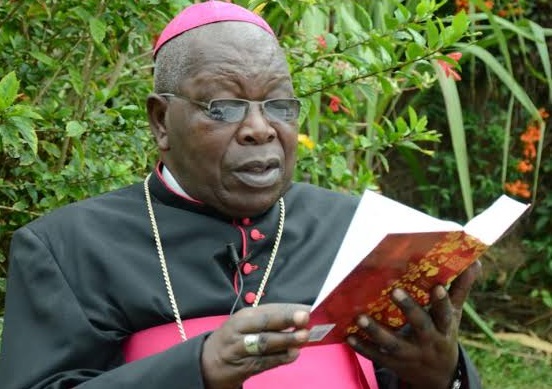By Robert Bigabwarugaba
The name Bakyenga can either mean “they understand” or “they understood” in the Runyakore language. His Grace Paul K Bakyenga has been painted with the virtue of generosity. This is because his name means he understands the life of man of the poor and needy, as his name suggests.
My latest encounter with the generosity of the late Archbishop Emeritus was in January 2023. When I had paid a courtesy call to his residence. As I was leaving, he asked me the amount of transport that I used from home. I had to deceive him and mentioned half of the money that I had actually used, little did I know that he was well informed that the costs were too high than I had told him, I ventured in deceiving him after screening his face that he wanted to pull something out of his pockets to give me.
The whole issue to deceive the servant of God was because I heard him receiving three phone calls from different people asking for help. The late Archbishop honestly told the three people that called at different intervals to forgive him because he had no money to fulfill their need. To my surprise, when I hesitated to stretch my hand towards the money he was offering to me, he roared in his famous voice to either take the little he was giving me or never visit the place again. Afterwards, he called on one of the Nuns to send money to the three people yet I had heard him whispering to the driver that he had no fuel in his vehicle so he would not travel to meet his personal Doctor.
He was a man found of helping even those that never dared to ask for his help. Generosity was the happiness of his heart. The concept of generosity is something to be grasped from his way of living here on earth. He deserves to be made a patron saint towards generosity.
What is Generosity?
The virtue of generosity has been central throughout the tradition of ethics. In order to grasp its ongoing significance, it is vital to place generosity within a broader context of reflection on hospitality, liberality, love, and charity. We discover in short order that pondering the nature of generosity has most often involved fundamental religious questions concerning the nature of humanity, God and the human-divine relationship.
For Christians, to be generous is to be conformed not just to Christ but also to the loving divine Parent, whose sacrificial self-gift into the world makes possible human fellowship in the divine life. “Though he was rich, yet for your sake he became poor” (2 Corinth. 8.9). Paul Bakyenga spoke the language of all fields imploring all human faculties to explore the sense of generosity. We need to understand from Paul Bakyenga that generosity involves giving beyond one’s means, and giving out their abundance may at some point be in need and be the recipients of the generosity of others.
One time I asked the late Archbishop the motivation behind his generosity and he told me something that is still fresh in my mind ‘When we put our hope in God’s provision, we can rest be assured that he will provide for our needs. Giving to others helps us tangibly practice in God rather than our riches or belongings.’ This has moved my philosophy to conclude that givers are always commensurately rewarded; hence according to their giving; hence givers never lack.
Giving is not about how much you have but how much faith you have. Giving to others helps us tangibly practice trusting in God rather than our riches or belongings. “the more we give, the more we delight in our giving – and the more God delights in us… God loves a cheerful giver” (2 Corinthians 9:7.)
Robert Bigabwarugaba ([email protected]) works at St Mukasa Seminary – Mbarara Archdiocese (PSY)
If you would like your article/opinion to be published on Uganda’s most authoritative news platform, send your submission on: [email protected]. You can also follow DailyExpress on WhatsApp and on Twitter (X) for realtime updates.



